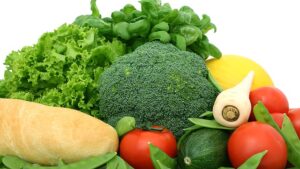As the global population grows, high-yielding harvests and healthy crops are essential to feed mouths across the world. Developing resilient plants with enhanced tolerance through plant breeding is a major piece to help solve this puzzle — but where exactly did plant breeding begin?
Breeding began thousands of years ago as farmers saved seed from their best crops to improve their harvest for the upcoming season and beyond. The next step for plant breeding came in the form of Gregor Mendel, also known as the “Father of Genetics,” in the 1900s. Mendel demonstrated the fundamental laws of inherited traits with his experiments and research on peas, opening up a whole new world for plant breeding.
On January 11 at 12:00 CST, the expert panelists on Seed Speaks will address the foundations of plant breeding and the crucial role Gregor Mendel played. Joining us are:
John Purcell, chief strategy officer at Unfold. Purcell has dedicated his life to helping farmers safely and sustainably grow food using less of the earth’s natural resources. In his roles as chief strategy officer and formerly as president and CEO of Unfold, he is continuing this same mission to improve the food ecosystem with more sustainable, fresher and better-tasting fruits and vegetables. At Unfold, he aims to help farm operators and retailers deliver on the immense promise of vertical farming.
During his time at Bayer and Monsanto, Purcell led programs designed to breed and cultivate fruits and vegetables that farmers love to grow, and consumers love to eat. His earlier work led to innovations and diverse technologies for important global crops including corn, cotton and wheat.
Prior to joining the food and agriculture industry, Purcell was a post-doctoral researcher at the USDA. He earned his Ph.D. in Molecular and Cellular Biology from the University of Massachusetts in Amherst. Purcell is also part owner of a family ranching operation in Montana.
Marcel Bruins, European Seed editor and founder of Bruins Seed Consultancy. Bruins studied plant breeding and plant pathology at the University of Wageningen in the Netherlands and received a PhD for the research he did in Fusarium resistance in wheat. After that, he worked at breeding company Seminis as manager for Plant Variety Protection. In 2007, Bruins became secretary-general at the International Seed Federation (ISF) and guided ISF into the modern era of communication, greatly increasing the service to its members. After seven successful years at ISF, he started as an independent consultant. Bruins has been helping profit and non-profit organizations with their questions on the seed industry and their ever-increasing regulations, plant breeding, plant breeders’ rights, intellectual property, trade facilitation and international outreach. He is also the editor of the European Seed magazine.
Michael Mazourek, Calvin Knoyes Keeney associate professor of vegetable breeding at Cornell University. Mazourek is a breeder of peas, beans, squash, cucumbers and peppers and has released numerous cultivars and breeding materials that are shared by small, regional seed companies and incorporated into breeding program of the world’s largest seed companies. His specialty is biochemical genetics in vegetables; he explores the diverse phytochemistry that plants use to repel pests and herbivores, reward and nourish pollinators and seed dispersers and cope with environmental stresses, with a goal of harnessing to maximize nutrition and sustainability. Mazourek shares the craft of plant breeding with students at Cornell, through grower conferences and field days. He is a pro-bono co-founder of Row 7 Seeds and on the board of directors of the Open Source Seed Initiative.










